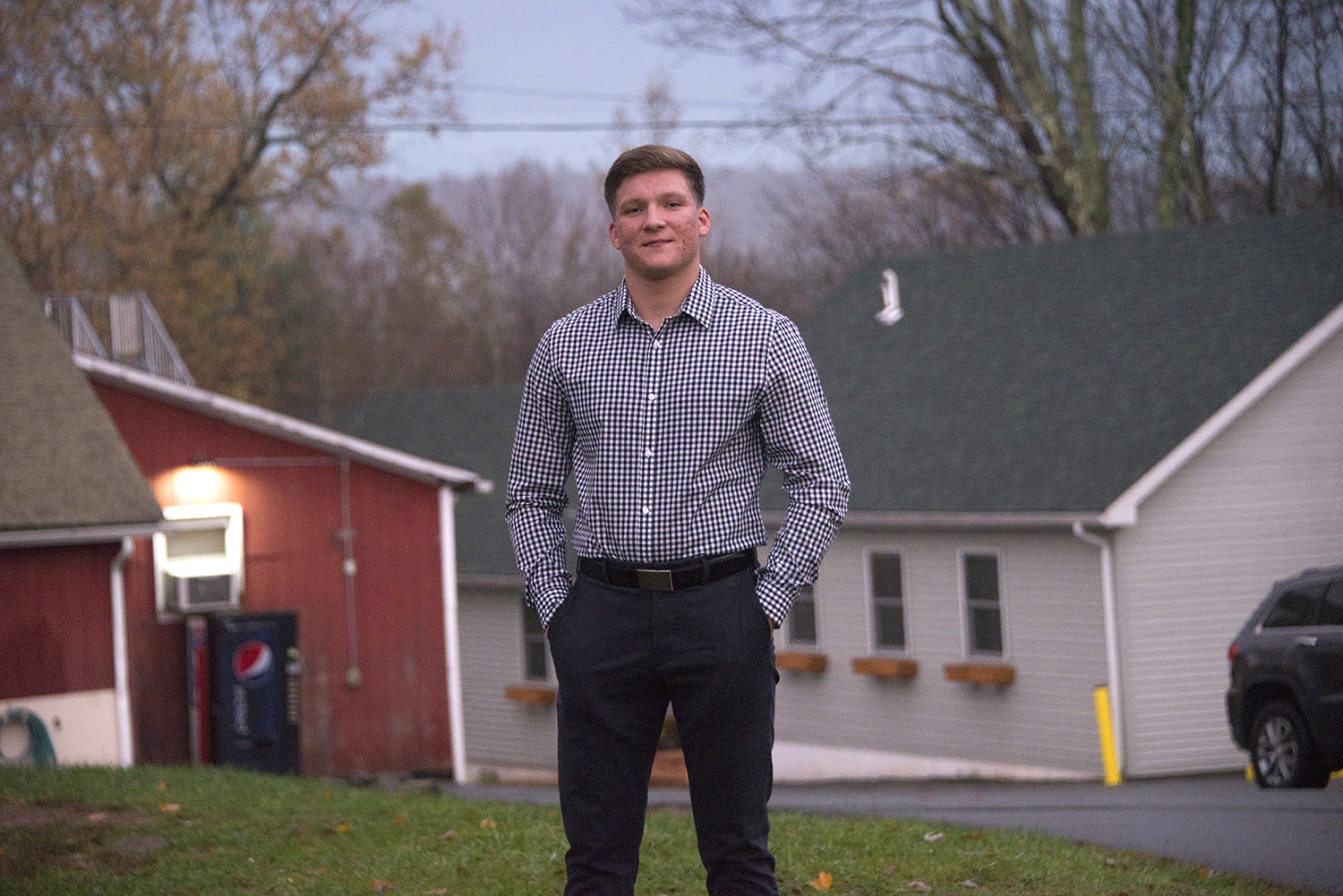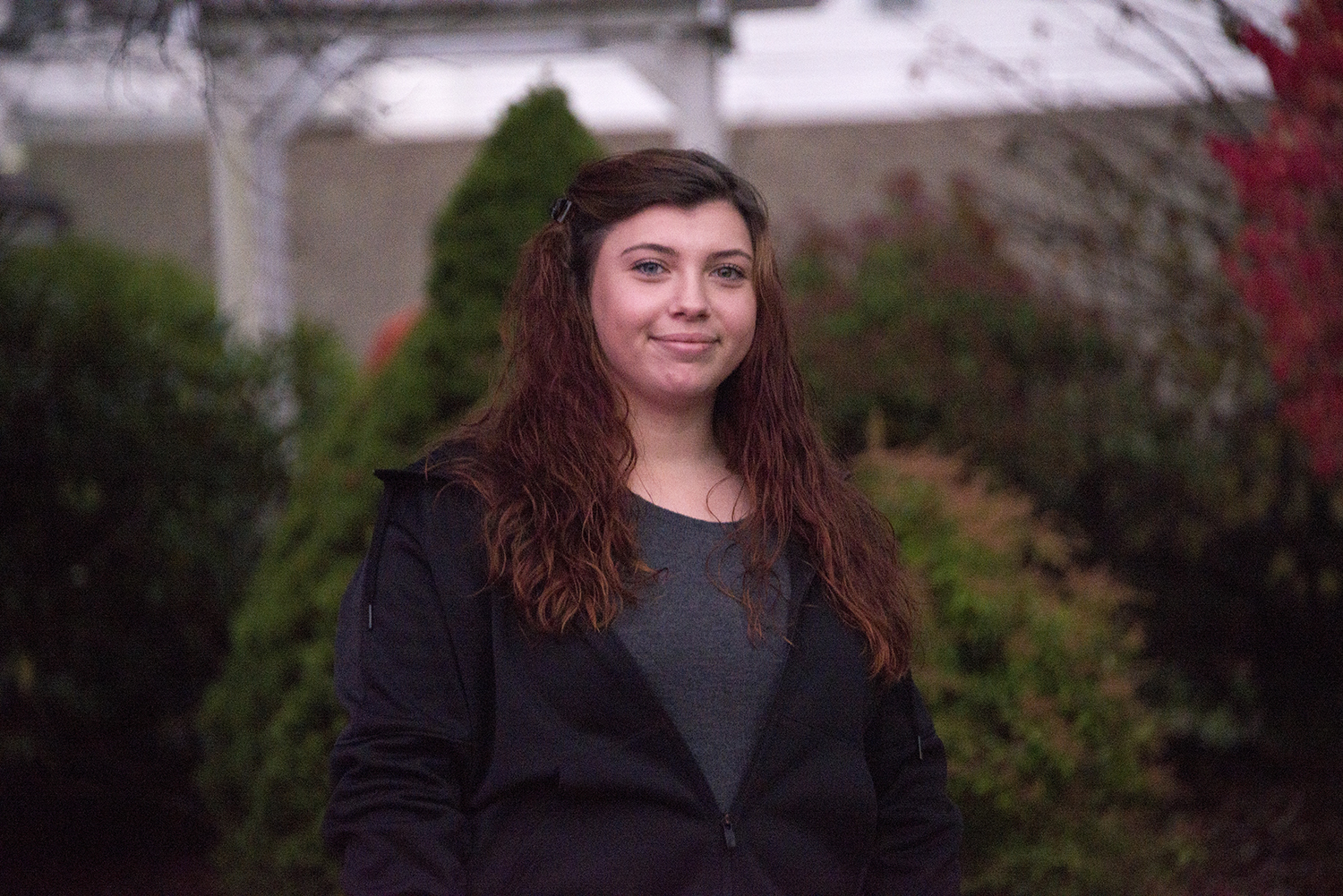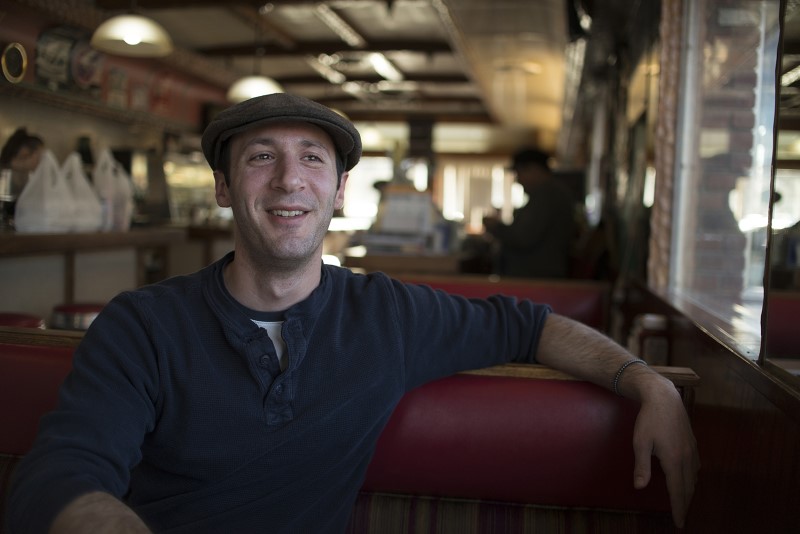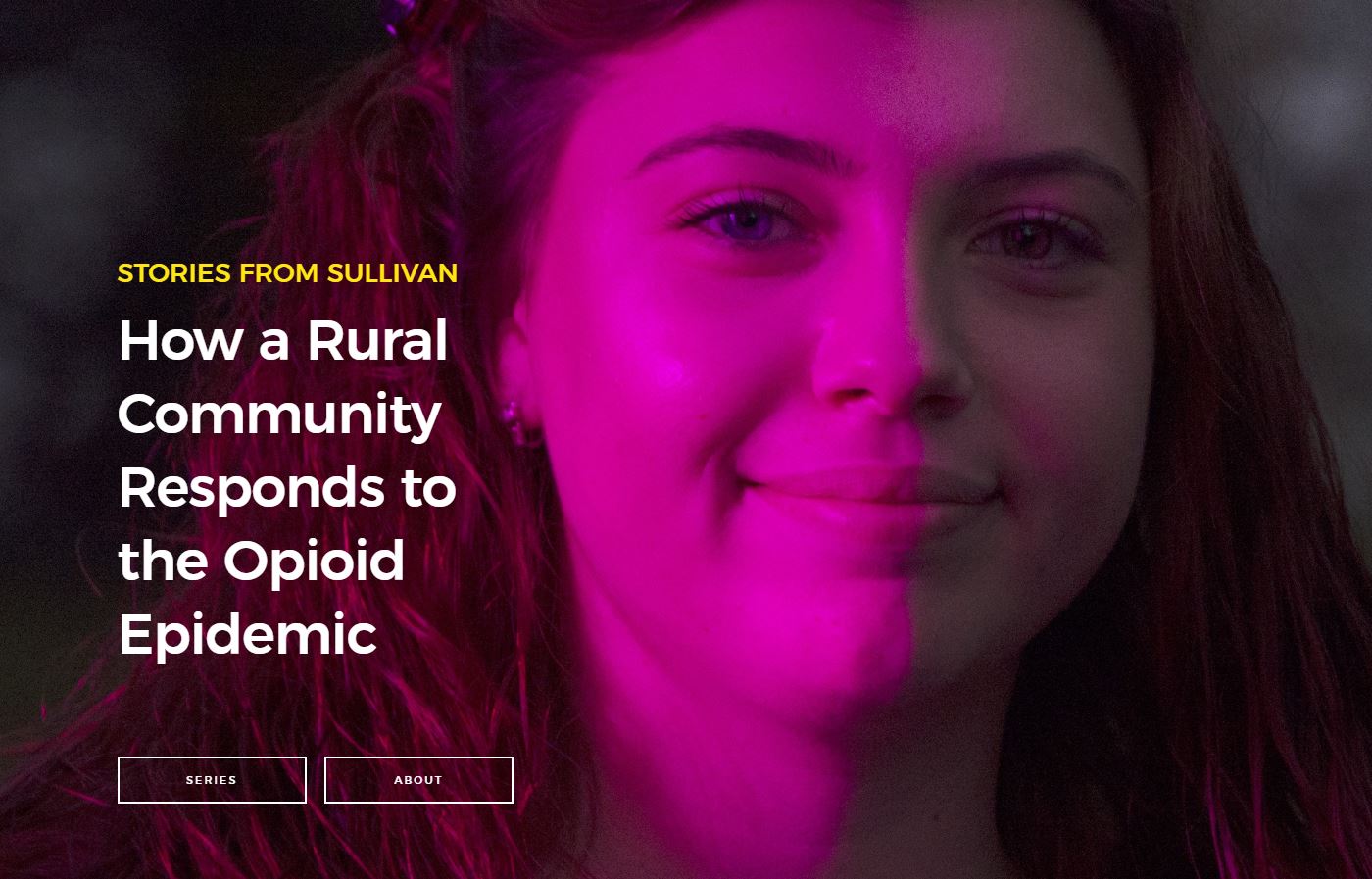Photo: Jared Levine, a Sullivan County native who is in recovery, pictured in Monticello.
Our previous blog introduced the “illusion of services,” or the disconnect between opioid treatment services that appear on paper and people’s actual ability to access them in person. We highlighted several obstacles to access, including the lack of medically supervised detox, length-of-stay restrictions, and regulations that make it easier to prescribe opioids than medication-assisted treatment.
But how do we end this illusion of services?
Part of the answer will be complex policy changes. But part of the answer is making sure we’re all on the same page: sharing information about accessibility, existing laws, and new research. We talked with Rob Kent, legal counsel for New York State’s Office of Alcohol and Substance Abuse Services (OASAS). Afterwards, we identified seven solid takeaways that everyone on the frontlines of the battle against opioid abuse should understand.
1. There’s no guard at the front door.
Everyone who wants to get treatment should be able to get it.
+ Not every individual requires inpatient detox, but even if patients are not presenting physical withdrawal symptoms they should be connected to adequate services: Under New York State’s Public Health Law, if a hospital does not provide substance use disorder services, “then it shall refer individuals in need of substance use disorder services to and coordinate with substance use disorder service programs that provide behavioral health services.” Furthermore, when a person with a substance use disorder is discharged, “the hospital shall inform the individual of the availability of the substance use disorder treatment services that may be available to them” (Public Health Law, section 2803-u). As Mr. Kent observed, discharging people into a parking lot or telling them to come back when the symptoms are worse is not considered an adequate referral. The Department of Health’s website lists hospital patients’ rights in New York State, while the ER Survival Guide provides advice to individuals who have been turned away.

Catskill Regional Medical Center in Harris, NY
+ Insurance companies cannot require patients to get prior authorization for inpatient or outpatient substance-use treatment in certified OASAS facilities: New York State eliminated insurance prior authorization requirements in 2016.
+ It is illegal for an insurance company to tell individuals that they must fail at outpatient treatment before they will cover inpatient treatment: “Fail First” policies, also known as “Step Therapy” protocols, are insurance policies that begin with the most cost-effective therapy and move to other, more costly therapies only if necessary. Chapter 512 of the Laws of 2016 includes protections for patients who are required to use step-therapy protocols and a process for appealing them. Patients who wish to file a complaint related to health insurance companies should contact the New York State Department of Financial Services at (212) 480-6400 or toll-free at (800) 342-3736.
+ Treatment facilities cannot turn patients away because patients cannot afford to pay: Every OASAS-certified treatment facility in the state is required to take patients seeking help. OASAS has prepared a list of questions for patients to ask when they have been denied admission to a treatment program.
+ Under the Mental Hygiene Law, inpatient and outpatient treatment facilities cannot turn patients away based solely on their:
+ prior treatment history;
+ referral source;
+ pregnancy status;
+ history of contact with the criminal justice system;
+ HIV and AIDS status;
+ physical or mental disability;
+ lack of cooperation by significant others in the treatment process; or
+ medication-supported recovery for opioid dependence prescribed and monitored by a physician, physician’s assistant, or nurse practitioner.
OASAS encourages providers to complete mental health screenings to ensure appropriate care, but current law does not explicitly preclude denial of addiction services based on a patient’s use of antidepressants or other medications designed for treating co-occurring mental health disorders.
2. There’s no preset limit on the time someone spends in treatment.
If an insurance company denies treatment because it believes treatment is not medically necessary, patients can appeal this decision. Even for New Yorkers who have insurance with a fourteen-day limit, if a patient’s request for additional treatment days is denied, the patient can appeal. Insurance companies must pay for treatment during the appeals process. Failure to appeal a denial of care means the patient effectively agrees with that decision. To learn more, see a video on the appeals process here.
3. State law permits services for family members too.
+ Families are crucial for helping individuals find stability and recovery. OASAS encourages providers to engage families and family support as “standard practice.” Because privacy laws can obstruct family involvement, the advocacy and support group Friends of Recovery – New York recommends carrying a signed HIPPA form at all times and obtaining a healthcare proxy.
+ Outpatient programs can provide services to family members to help them support a loved one’s recovery, address their own emotional stress dealing (past or present) with a loved one’s substance use disorder, and learn strategies to encourage recovery.
+ For more detail about how providers can bill for a family visit, see FAQ for Family Treatment.
4. Hospitals can make a difference in this fight if they prescribe emergency buprenorphine in the Emergency Department.
Although physicians who prescribe medication-assisted treatment must obtain authorization from the Drug Enforcement Administration, the “three-day rule” allows practitioners to administer medication-assisted treatment for a maximum of seventy-two hours to relieve acute withdrawal symptoms while arranging for treatment. Research suggests that “risk of recurrent use, overdose and death is high if patients are withdrawn from, or do not receive, effective long-term medication treatment.”
5. Patients don’t “complete” treatment for substance-use disorder; instead, health professionals should adjust the intensity of services as patients’ needs evolve.
Substance-use disorder is a chronic disease, and treating it is a lifelong process. Most patients go through treatment a number of times before they stabilize. The type of services individuals receive, e.g., intensive outpatient services versus residential/inpatient services, should reflect individual needs.
6. People with substance-use disorders do recover, and they lead productive lives.
Despite the scary statistics, substance-use disorder is not a death sentence.
While we know that in 2016 more than 66,500 people entered treatment in New York State, anonymity makes it difficult to get an accurate count of the people who are now living in recovery. Even when treatment is successful, people can be reluctant to publicize the fact that they’ve completed a program. Getting people in recovery to come out and say they’ve benefited from treatment is part of a broader movement to raise awareness around substance-use disorders.
 |  |
 |  |
Members in recovery at Dynamite Youth Center in Fallsburg, New York. Listen to their stories.
7. OASAS wants to hear from you.
If you are a provider who is struggling to meet New York State requirements, or if you believe that OASAS regulations stand in the way of providing treatment to people in your community, Mr. Kent wants to hear from you. Contact OASAS at: [email protected].
If you are a patient or family of a patient who is unsure of your rights or believe that you have been unfairly denied services, contact OASAS Patient Advocacy Services at: 1-800-553-5790.
ABOUT THE AUTHORS
Patricia Strach is the director for policy and research at the Rockefeller Institute of Government
Katie Zuber is the assistant director for policy and research at the Rockefeller Institute of Government
Elizabeth Pérez-Chiqués is a visiting fellow at the Rockefeller Institute of Government
SUGGESTED CITATION
Patricia Strach et al., “Seven Things That Everyone on the Frontlines of the Opioid Crisis Should Know,” Rockefeller Institute of Government, December 21, 2018, https://rockinst.org/blog/seven-things-that-everyone-on-the-frontlines-of-the-opioid-crisis-should-know/.
READ THE SERIES
The Rockefeller Institute’s Stories from Sullivan series combines aggregate data analysis with on-the-ground research in affected communities to provide insight into what the opioid problem looks like, how communities respond, and what kinds of policies have the best chances of making a difference. Follow along here and on social media with the hashtag #StoriesfromSullivan.


